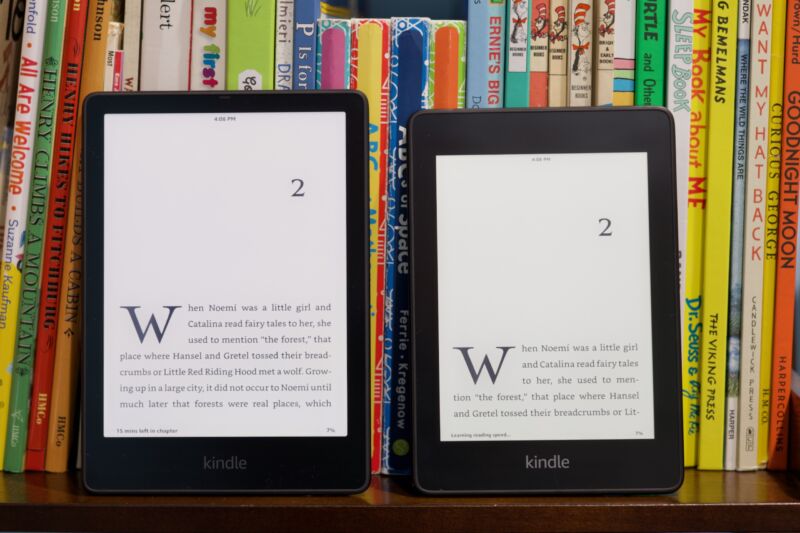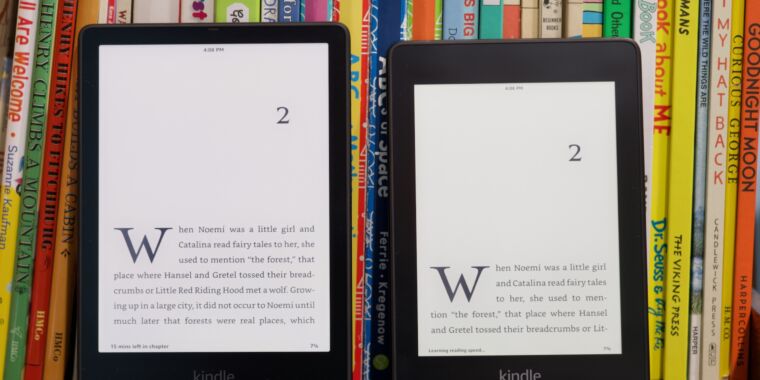
Andrew Cunningham
Amazon’s Kindles are some of the best dedicated e-readers money can buy, but a long-standing criticism from users of DRM-free books from non-Amazon sources is that they don’t support the open ePub standard. That changed sometime in the recent past, as noted by Good E-Reader: Amazon’s Kindle Personal Documents Service now accepts ePub files sent to your device’s Send to Kindle email address, the same way it currently does PDF files. files, Word documents are processed. , and other image and text files.
Kindles still don’t support sideloading ePub files. The Send to Kindle service converts the documents to AZW3 files, something users could already do themselves with a variety of free tools. But official Amazon support removes a step from the process and helps users avoid shady, ad-ridden third-party conversion sites. We tested it with an 11th generation Kindle Paperwhite with the latest version of the Kindle software, and the conversion process seemed to run smoothly.
If using the Send to Kindle email address is still too onerous, Amazon’s support document says it will add the same ePub conversion support to its Send to Kindle apps by the end of 2022. Amazon also says it will be extending Send to Kindle support for MOBI files by the end of 2022, because those files “don’t support the latest Kindle document features.” MOBI files already on your device will stay there and continue to work as they currently do.
This outrageous support for ePub files is part of a slow software overhaul that has trickled down to the newer Kindles over the past year. Amazon started rolling out changes to the Kindle UI last September, the first major UI update to e-readers since 2016, and more changes were added in March of this year. The software changes were accompanied by hardware updates such as the 11th generation Kindle Paperwhite with larger screens.

